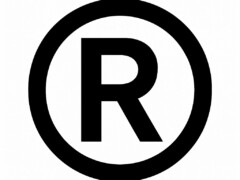
Not to be dramatic, but in a crisis, the attorney-client privilege really does put a guardian at the front door of your facility. Always integrate legal advice in your response to any legal claim.
When a food business is hit with a legal claim, a manufacturer will instinctively launch an internal investigation right away. This response is typical whether it’s a customer rejecting a delivery of manufactured products, a Proposition 65 lawsuit, or a recall over contamination or mislabeling. All conscientious food manufacturers will immediately test the facility with hundreds of swabs, sample and analyze retained samples and supplies, and send it all off to a lab for analysis. That impulse to get answers fast is a mark of professionalism. But one critical misstep can expose a manufacturer to adverse consequences in discovery during litigation. A good food business owner needs to understand how to use the Attorney Client Privilege to prepare for litigation or other adverse events.
Before the first swab is sent off, a manufacturer needs to hire an attorney. The attorney then hires the outside experts to “advise” the attorney on the scientific and analytical merits of the claim. The Attorney–Client Privilege covers all analysis results when legal counsel hires and directs the experts in the correct sequence.
Why Attorney-Client Privilege Is Essential in Food Litigation
There is only one way to hire outside experts to assist with the preparation of defending a legal claim. Legal counsel must direct the work of outside consultants. Legal counsel’s involvement ensures the resulting analysis qualifies for protection under the attorney–client privilege. These legal protections prevent opposing parties from accessing sensitive findings through discovery. In contrast, if consultants are engaged directly by the manufacturer without counsel’s involvement, opposing counsel can often compel their findings through discovery.
This distinction has significant implications. Reports that contain early evidence of error or noncompliance on the part of the food business will become the foundation of a plaintiff’s case. When counsel first reviews those same facts under privilege, counsel has the opportunity to develop strategy and coordinate a response without prematurely disclosing vulnerabilities. Using the Attorney Client Privilege to prepare for litigation enables the manufacturer to selectively disclose facts favorable to its position. Simultaneously, privilege allows the manufacturer to oscure facts and lab results that can harm the company’s legal outcome.
Types of Claims in Food Manufacturing That Require the use of Privileged Analysis
The approach applies across a range of scenarios. Examples include contamination incidents, undeclared allergens, food-borne illness, or Proposition 65 claims. In each case, initial testing and investigation are critical to prevent the spread of the crisis. Hoiwever, preserving control over the findings is equally important. Engaging counsel at the outset ensures that legal protections insulate scientific findings and that the legal team controls all disclosures. For manufacturers facing scrutiny, this disciplined approach is not only prudent—it is essential.
Please review our Litigation Services page for more information on responding to potential legal threats
















